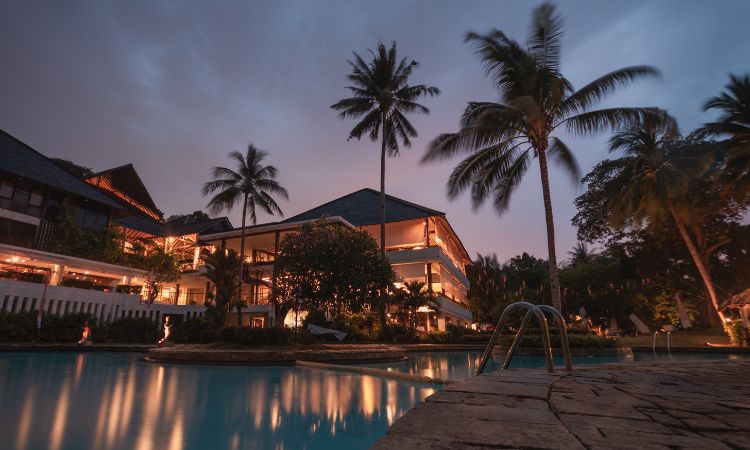The Indian hospitality sector, known for its richness and depth, has witnessed reform and development in recent years. However, the sector has faced significant challenges, particularly in terms of labour shortages, which have been exacerbated by the COVID-19 outbreak. Despite these obstacles, the sector has demonstrated resilience and is on the road to recovery and future expansion.
Prior to the COVID-19 epidemic, the Indian hotel industry had achieved significant achievements. increased tourist inflows, increased domestic travel demand, and government efforts to promote tourism and hospitality all aided the industry’s growth. The Federation of Hotel and Restaurant Associations of India anticipated a compound annual growth rate (CAGR) of 16.1% from 2020 to 2025.
For millions of Indians, the hotel sector has traditionally been a major source of income. However, it has suffered manpower shortage worries due to factors such as a lack of qualified professionals, high attrition rates, and pandemic-related pauses. According to predictions, employment will grow at a 5.5% CAGR until 2029, necessitating the hiring of an additional 100,000-150,000 skilled workers each year in the luxury hotel industry alone.

Strategies for Overcoming Staff shortfall: Organisations in the hospitality sector have created efficient ways to address the manpower shortfall while retaining efficiency. Innovative tactics, the use of technology, and the prioritising of employee training and involvement aided in the optimisation of resources and the assurance of efficient operations. Using these strategies, hotels and institutions solved difficulties while offering excellent customer service.
Promising Growth and Recovery: In the aftermath of the COVID-19 pandemic, the Indian hotel business has shown resilience and signs of recovery. According to a CBRE South Asia research, the industry is expected to draw more than $2.3 billion in investment over the next 2-5 years. Furthermore, 12,000 hotel rooms are projected to be created in 2023 alone, indicating a renewed emphasis on expansion.
Future Outlook: The analysis predicts a 3.3% CAGR in the number of hotel rooms by 2025. The industry anticipates that demand will outstrip supply, resulting in favourable performance indicators. This upbeat trajectory suggests that the Indian hospitality sector will continue to develop and provide new prospects.
To summarise, while the Indian hotel industry suffered tremendous obstacles, including workforce shortages exacerbated by the COVID-19 epidemic, it has demonstrated resilience and indications of recovery. The industry can overcome these issues while embracing expansion and providing outstanding client experiences by focusing on developing successful strategies, harnessing technology, and prioritising staff training and engagement. The forecasted investments and hotel room additions reflect the sector’s future development and expansion potential.
Taj Hotels and Oberoi Hotels’ Legacy
When it comes to luxury hotels, Taj Hotels and Resorts (which was bought by Indian business conglomerate Tata Group in December 2016) is a household name and synonymous with 5-star luxury. Meanwhile, while Oberoi Group’s hotels aren’t as well known globally, they’re equally recognized in India as one of its leaders in hospitality. Oberoi Group is known to have some of the best hotels and resorts in India. Walk into an Oberoi property and you’d be assured of impeccable hospitality, exquisite rooms with luxuries and top-notch amenities.
The Legacy of Oberoi Hotels: From Humble Beginnings to Hospitality Excellence
The visionary founder of Oberoi Hotels, Rai Bahadur Mohan Singh Oberoi, overcame hardship and committed his life to leaving a unique legacy in the hospitality business. Oberoi’s path from modest origins to being the “Father of the Hotel Industry” is an amazing narrative of drive, endurance, and astounding achievements. Let’s delve into his early life, entry into the hotel sector, and the lasting impact he left behind.
Early Life and Challenges:
Rai Bahadur Mohan Singh Oberoi was born into a Sikh family in the Bhanau village of Pakistan’s Jhelum province. Tragic events occurred when he was just six months old, when he lost his father. With his mother shouldering the family’s duties, Mohan Singh resolved to stand up and help his family. In 1918, he took the tough decision to abandon his studies and begin working as a manager at his uncle’s shoe business in Lahore. However, owing to rioting, the plant was forced to close, leading Mohan Singh to seek other employment.
Foray into the Hotel Industry:
In 1922, Mohan Singh Oberoi travelled to Shimla in quest of work, equipped with only $25. He got his first work as a front desk receptionist at The Cecil Hotel as the region was dealing with a plague outbreak. He engaged himself in the workings of the hotel sector, earning $50 per month, and got a thorough grasp of its operations. Mohan Singh purchased his first property, The Clarkes Hotel in Shimla, with tenacity and a desire to create a better life for his family. He took enormous risks in funding the acquisition by mortgaging his wife’s jewellery and other valuables. He then leased 500 rooms at Kolkata’s Grand Hotel, substantially increasing his business.
Becoming the Father of the Hotel industry:
Mohan Singh Oberoi’s unshakable passion and tireless pursuit of achievement catapulted him to unprecedented heights in the hotel business. He eventually purchased one hotel after another, thanks to his confidence, persistence, and insight. The Oberoi Group presently has over 31 magnificent hotels and resorts that are noted for their outstanding service and world-class facilities. The contributions of Mohan Singh Oberoi to the hotel industry earned him the moniker “Father of the Hotel Industry.” In acknowledgment of his accomplishments, he received the coveted Padma Bhushan award in 2001.
Enduring Legacy:
Although Rai Bahadur Mohan Singh Oberoi is no longer among us, his life is a wonderful example of how hard work, commitment, and a clear vision can shape one’s destiny and pave the path for future generations. The Oberoi Group thrives and upholds his legacy by providing great luxury and hospitality experiences to visitors worldwide.
Taj Hotels: A Timeless Legacy of Indian Luxury Hospitality
Taj Hotels, created by Jamsetji Nusserwanji Tata, is a well-known name in the world of luxury hospitality. Taj Hotels has become synonymous with Indian luxury, from its renowned flagship property, the Taj Mahal Palace in Mumbai, to its broad collection of hotels, resorts, and palaces. This article goes into Taj Hotels’ unique history, founding tale, and lasting presence in the international hospitality business.
Founding Story:
Jamsetji Nusserwanji Tata, the visionary creator of the Tata Group, laid the groundwork for the first Taj Hotel, the Taj Mahal Palace, in 1903. While numerous myths surround its origins, one theory is that Jamsetji Tata intended to construct the greatest hotel in Mumbai after being denied admittance to Watson’s Hotel owing to racial prejudice. However, it is more probable that he wished to contribute to the city he loved by making Mumbai famous for its beauty.
The Taj Mahal Palace:
The Taj Mahal Palace, often known as the “Diamond by the Sea,” is a symbol of richness and majesty. Jamsetji Tata personally laid the foundation in 1898, four years before its official opening. Notably, the Taj Mahal Palace was the first structure in Bombay to be lit by electricity, demonstrating the hotel’s dedication to technology and offering unparalleled guest experiences. Even the famed Gateway of India, which was built later in 1911, predates the Taj Mahal Palace.
Expansion and Global Recognition:
Today, Taj Hotels, Resorts, and Palaces are renowned across the world for their rich legacy and various services. The firm has increased its footprint across India and now operates 50 hotels and 5 resorts in 23 locations. Taj Hotels has been instrumental in India’s ascension into the global business, leisure, and tourism industries. The brand’s dedication to quality, outstanding service, and magnificent accommodations has elevated it to the status of a real emblem of Indian luxury.
Enduring legacy:
Taj Hotels’ heritage is inextricably linked to Jamsetji Tata’s vision and principles. Although he had no intention of becoming a hotelier, his desire to contribute to Mumbai’s reputation and splendour drove him to construct the Taj Mahal Palace. Following his death in 1904, his son, Dorab Tata, and his partners at Tata & Sons were tasked with nurturing and growing the Taj Hotels brand. Their persistent devotion and dedication have driven Taj Hotels to its current position as a worldwide hospitality leader.
Conclusion:
Prior to the pandemic, the sector had exhibited extraordinary development, with increased tourist arrivals and government attempts to boost tourism.
Looking ahead, the Indian hotel business is primed for expansion and growth. The development of new hotel rooms and investments in the industry indicate the sector’s potential and the growing demand for luxury lodgings. Taj Hotels and Oberoi Hotels both have lasting legacies in the hospitality business. Oberoi and Taj are world-class luxury hotels with magnificent decor, unrivaled service, and outstanding locations throughout India. Oberoi has 38 properties in 20 Indian cities, whereas Taj has 50 hotels and 5 resorts in 23 Indian cities. These prestigious hotel chains continue to give extraordinary experiences, honouring the legacy of their founders and contributing to the growth of the Indian hospitality sector.
In a nutshell, the Indian hospitality sector is prepared to thrive with an emphasis on strategic planning, personnel development, and technology developments. The enduring legacies of Taj Hotels and Oberoi Hotels, as well as the industry’s resiliency and capacity for growth, provide a positive picture for the future of luxury hospitality in India.
Read Also –Top 5 Best Hotel Booking Apps in India 2023















